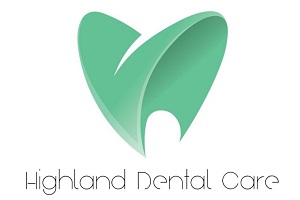Smoking may be a habit enjoyed by many, but its impact on our health cannot be ignored. While the detrimental effects of smoking on our respiratory system and cardiovascular health are well-known, it's important to shine a spotlight on another often overlooked area: our oral health. Yes, that's right - lighting up can wreak havoc on your teeth and gums!
Effects of Smoking on the Mouth
Smoking can have severe consequences for your oral health. One of the most noticeable effects is teeth discoloration. The nicotine and tar found in cigarettes are notorious for staining teeth, leaving them yellow or even brownish in color. But it doesn't stop there. Smoking also increases the risk of developing gum disease. This is because smoking weakens the immune system, making it harder for your body to fight off infection. As a result, smokers are more likely to experience bleeding gums, bad breath, and even tooth loss.
Furthermore, smoking slows down the healing process after dental procedures such as extractions or implants. It impairs blood flow to the gums and bone tissue, which can lead to complications and delay recovery time. Another lesser-known effect of smoking on oral health is its impact on taste buds and smell receptors. Smokers often find that their sense of taste and smell become dulled over time due to the toxic chemicals present in tobacco smoke.
Tips for Quitting Smoking and Improving Oral Health
Quitting smoking can be a challenging journey, but it is one that will greatly benefit your oral health. Here are some tips to help you kick the habit and improve your overall dental wellbeing.
- Seek professional help: Talk to your healthcare provider or dentist about strategies and resources available for quitting smoking. They can provide guidance tailored to your specific needs and recommend nicotine replacement therapies or medications if necessary.
- Build a support system: Surround yourself with family, friends, or support groups who understand the challenges of quitting smoking. Their encouragement and understanding can make a big difference in staying motivated.
- Identify triggers: Pay attention to situations, people, or emotions that trigger the urge to smoke. By recognizing these triggers, you can develop strategies to avoid them or find healthier alternatives, such as chewing sugar-free gum or snacking on crunchy fruits and vegetables.
- Practice stress management techniques: Smoking often becomes a coping mechanism for stress relief. Find alternative ways to manage stress, like exercise, deep breathing exercises, meditation, or engaging in hobbies that bring joy and relaxation.
- Make oral hygiene a priority: Brushing twice daily with fluoride toothpaste and flossing regularly are essential habits for maintaining healthy teeth and gums – especially when quitting smoking! Removing plaque buildup reduces the risk of gum disease, which smokers are more susceptible to.
- Stay hydrated: Drinking plenty of water helps combat dry mouth caused by tobacco use while also flushing out toxins from the body, including those harmful chemicals found in cigarettes.
- Get regular dental check-ups: Schedule routine dental visits every six months so that your dentist can monitor any changes in your oral health closely during this transition period from being a smoker to a non-smoker.
Highland Dental Care, located in Denver, CO, is equipped with the best dentists and modern technologies. Call us at (303) 455-3838 to schedule an appointment at our dental practice.
